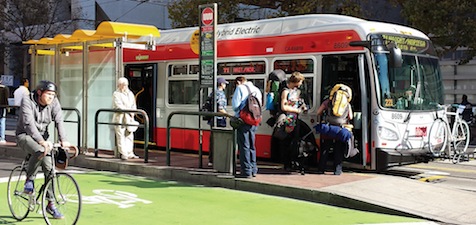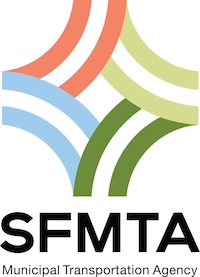Client: San Francisco Municipal Transportation Agency
 The Transportation Sustainability Program (TSP) seeks to improve and expand upon San Francisco’s transportation system, helping to accommodate new growth within the City. The Transit Impact Development Fee program of San Francisco Municipal Transportation Agency (SFMTA) supports capital and operational costs resulting from increased transit demand generated by new non-residential development. SFMTA sought a Transportation Sustainability Fee (TSF) program that would apply to all land uses citywide and that would streamline the transportation component of the City’s environmental review process.
The Transportation Sustainability Program (TSP) seeks to improve and expand upon San Francisco’s transportation system, helping to accommodate new growth within the City. The Transit Impact Development Fee program of San Francisco Municipal Transportation Agency (SFMTA) supports capital and operational costs resulting from increased transit demand generated by new non-residential development. SFMTA sought a Transportation Sustainability Fee (TSF) program that would apply to all land uses citywide and that would streamline the transportation component of the City’s environmental review process.
In collaboration with Cambridge Systematics, Nelson\Nygaard and Urban Economics, Seifel provided real estate economic analysis for the proposed TSF program. An important goal of the TSF program is to lessen the time and cost for project-specific environmental review. Seifel evaluated the potential economic benefits and burdens that the proposed TSF program would convey on new development in San Francisco by achieving this goal.
Seifel worked with SFMTA, the Planning Department and the Office of Economic and Workforce Development to identify prototypical developments for a range of land uses and to document the typical planning and environmental review process that would occur before and after potential implementation of the TSF program.
 Our assessment helped City staff understand how the proposed program might affect development in San Francisco and what types of economic benefits might be generated. Seifel prepared real estate pro forma models of residual land value with and without the TSF program for residential, mixed use and office land uses in order to understand the financial impact of alternative TSF policies on new development.
Our assessment helped City staff understand how the proposed program might affect development in San Francisco and what types of economic benefits might be generated. Seifel prepared real estate pro forma models of residual land value with and without the TSF program for residential, mixed use and office land uses in order to understand the financial impact of alternative TSF policies on new development.
The San Francisco Board of Supervisors adopted the Transportation Sustainability Fee, which went into effect December 2015.
Image credits: Ming Vong//SF Examiner (top); SFMTA (bottom)
